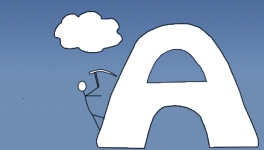« Studying Computational Microeconomics? | Main | Hotel Booking Tips to Avoid a Travel Nightmare »
Why eBay is Doomed
By Chris | October 25, 2007
I have heard a number of complaints about eBay over the last few months: the site is being overrun by shady commercial listings, it’s more difficult to find relevant listings, and design changes are confusing. The company definitely is embracing change. In 2005, CEO Meg Whitman spearheaded the hasty and expensive acquisition of Skype. The purchase of Skype has been highly criticized. EBay recently announced it would take a $1.4 billion charge in relation to the purchase. More recently, the auction website added a social networking component called My World.
EBay was one one of the few internet pioneers of the 1990’s that was profitable from the start. Its success can largely be attributed to network effects. As eBay grew larger it’s value to buyers and sellers increased at an increasing rate. Its rating system gave users confidence in transactions with complete strangers. Later, its acquisition of Paypal and its vigilant efforts to fight phishing scams further increased the security it offers its users.
However, ecommerce on the rest of the net has grown and matured as well. Amazon.com has a thriving market for used goods. Yahoo! and other sites have made it simple for small businesses to easily and securely sell products. eBay’s differentiating service is auctions. And for most goods, auctions aren’t very attractive to buyers. First of all they are time consuming in a consumer culture that worships convenience. On eBay it can take seven days for an auction to end. But, more troublesome is their failure to match buyers and sellers efficiently.
For example, I recently was looking to buy a vintage Minnesota Twins t-shirt. I went straight to eBay and found two that I liked. The problem was that bidding on my second choice ended first and bidding on my first choice ended last. I faced a dilemma. I only really wanted one Twins shirt. If I waited to bid on my first choice and I lost the auction, I would be out of luck. But, if I bid early on the less preferred shirt and won, I could possible forego the opportunity to buy a shirt I liked better, for less money. This problem is compounded by software that allows eBayers to place their bids in the final moments of an auction. This makes the auctions similar to a sealed-bid auction where the winner pays the next highest price. It keeps price information private that, if public, would allow buyers to make better informed decisions. If I knew that the price of my preferred shirt was already selling for 100 dollars, I would be more inclined to buy a slightly lesser preferred shirt that cost much less.
It’s an exaggeration to say that eBay is doomed, it has a large base of users and strong brand recommendation. However, it has some real challenges to address. If eBay wants to grow its profitable ecommerce business, it needs to offer buyers more than friend requests and free phone calls.
Topics: Economics, Web 2.0 | No Comments »


